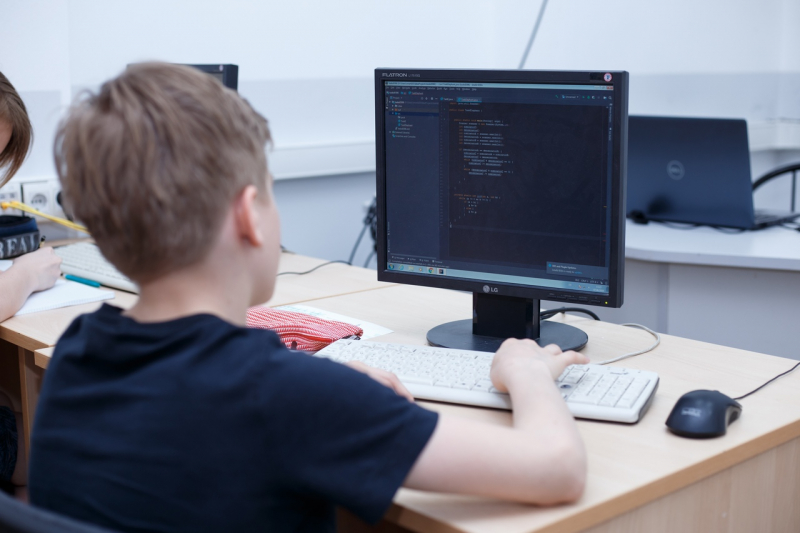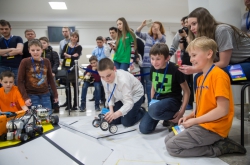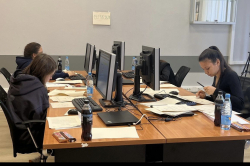Over the course of the last four years, ITMO forms part of the world’s top-100 IT universities according to the British magazine Times Higher Education (THE). The university placed 74th in this year’s THE ranking, which is the best performance among all Russian universities. Apart from this, the university has long become a foundry of the champions of ICPC, the largest and most prestigious international competition in the field of sports programming. ITMO students have broken ground by claiming the championship’s victory seven times, and no other university in the world has managed to repeat this success. ITMO University also organizes the International Open Competition in Computer Science, which for ten years already has been part of the list of the Russian Council of School Student Competition.
As noted by Dmitry Zubok, deputy dean of ITMO’s Information Technologies and Programming Faculty, all this work has contributed to ITMO University being chosen by the Ministry of Education of the Russian Federation as a developer of the contents of basic educational programs for basic general (grades fifth to ninth) and secondary general education in the field of computer science.
The work carried out by the university’s specialists in accordance with the assignment of the Ministry of Education of the Russian Federation includes analysis of the international experience and best practices in teaching computer science, studying the prospects for future development in the field of information technology, as well as the impact of information systems on educational processes.
ITMO University specialists have already outlined how computer science should be taught. The final version of the concept is available here (in Russian). Apart from that, ITMO University has already developed the project regarding the contents of basic educational programs in computer science. The next stage of the project includes its public discussion and assessment by external experts.
How public discussion will be held
The public discussion will take place on this website. To participate, one needs to:
1. Familiarize themselves with the developments
The proposed core curricula contents for basic general education are available here. The educational materials for secondary general education in the field of computer science are available here.
2. Submit their comments and suggestions
To conduct an expert assessment and make suggestions, one must register on the project’s website. Registered users have the opportunity to leave comments. Apart from that, upon reviewing each document (there are five of them in total), they can assess it according to two criteria.
It’s important to note that you can either submit your analysis and suggestions for either one specific education level or choose to comment on all two of them.
Who can participate
Anyone interested in the development of effective educational programs in the field of computer science for school students is invited to participate. Invited as experts are:
- representatives of the field of general education (teachers, heads of education institutions, specialists and heads of education management bodies);
- representatives of the field of higher education providing training in the field of information technology;
- representatives of the IT industry and the scientific community;
- members of the public.
“We are counting on the participation of people who have the experience of teaching computer science, know the relevant methodology and are familiar with the problems in this field. Apart from that, it is also very important for us to involve in the discussion the staff and heads of educational institutions who are responsible for the organization of the education process, its monitoring and quality assessment. Last but not least, our third focus category are the students and their parents, who can be characterized as the main consumers of the education process. At this point of the discussion, members of the public also are a very important category,” comments Dmitry Zubok.
Key dates and further stages of the project
One can familiarize themselves with the project and submit their suggestions before December 9.
When the public discussion comes to an end, the project’s coordinators will analyze all the suggestions and comments and finalize the project. The results of the expert evaluation will be published here along with the final version of the project and the protocol of an online conference, which will be held during the second stage of discussion and examination.
After the conclusion of all the preparation stages, the final project will be presented to the Ministry of Education of the Russian Federation.





